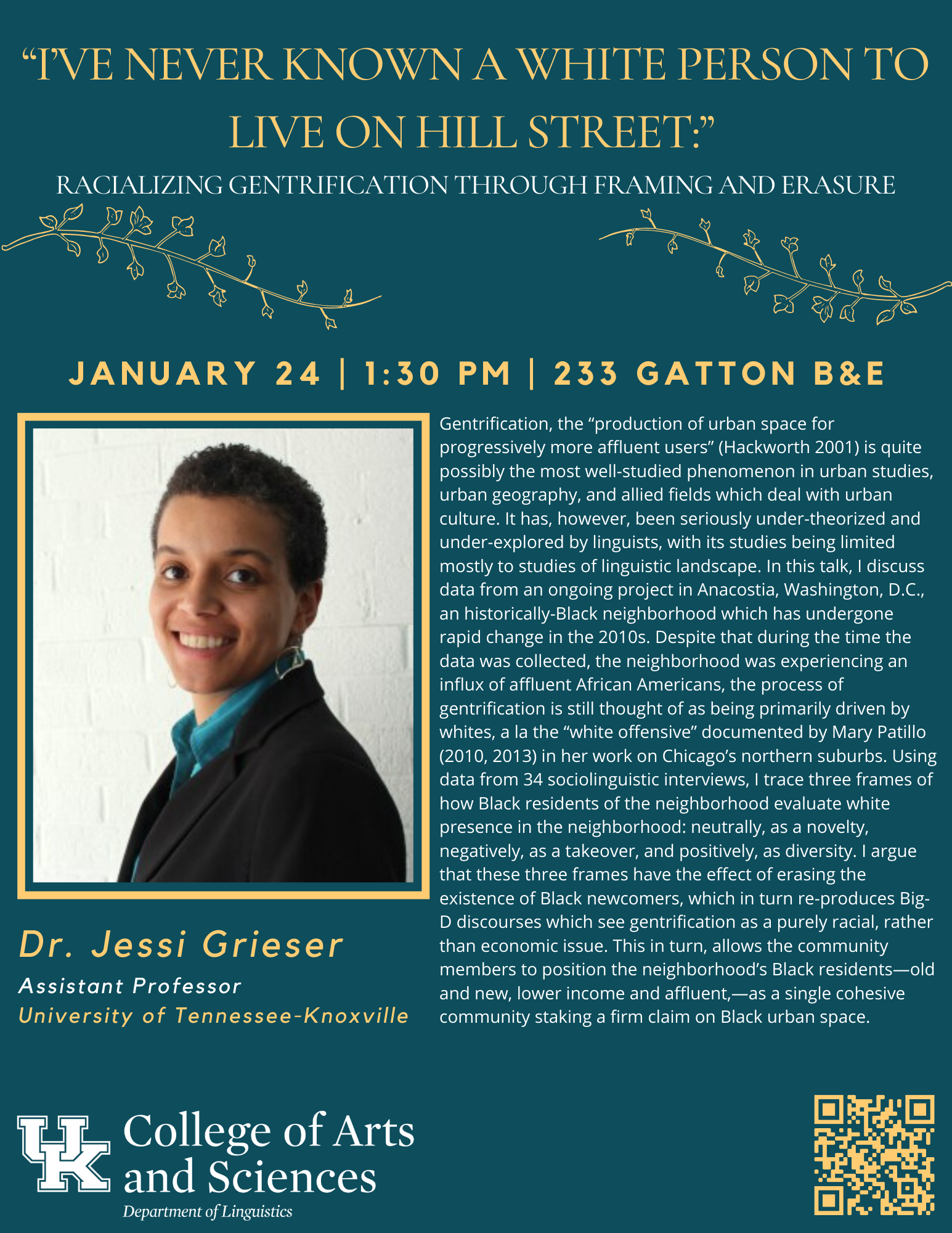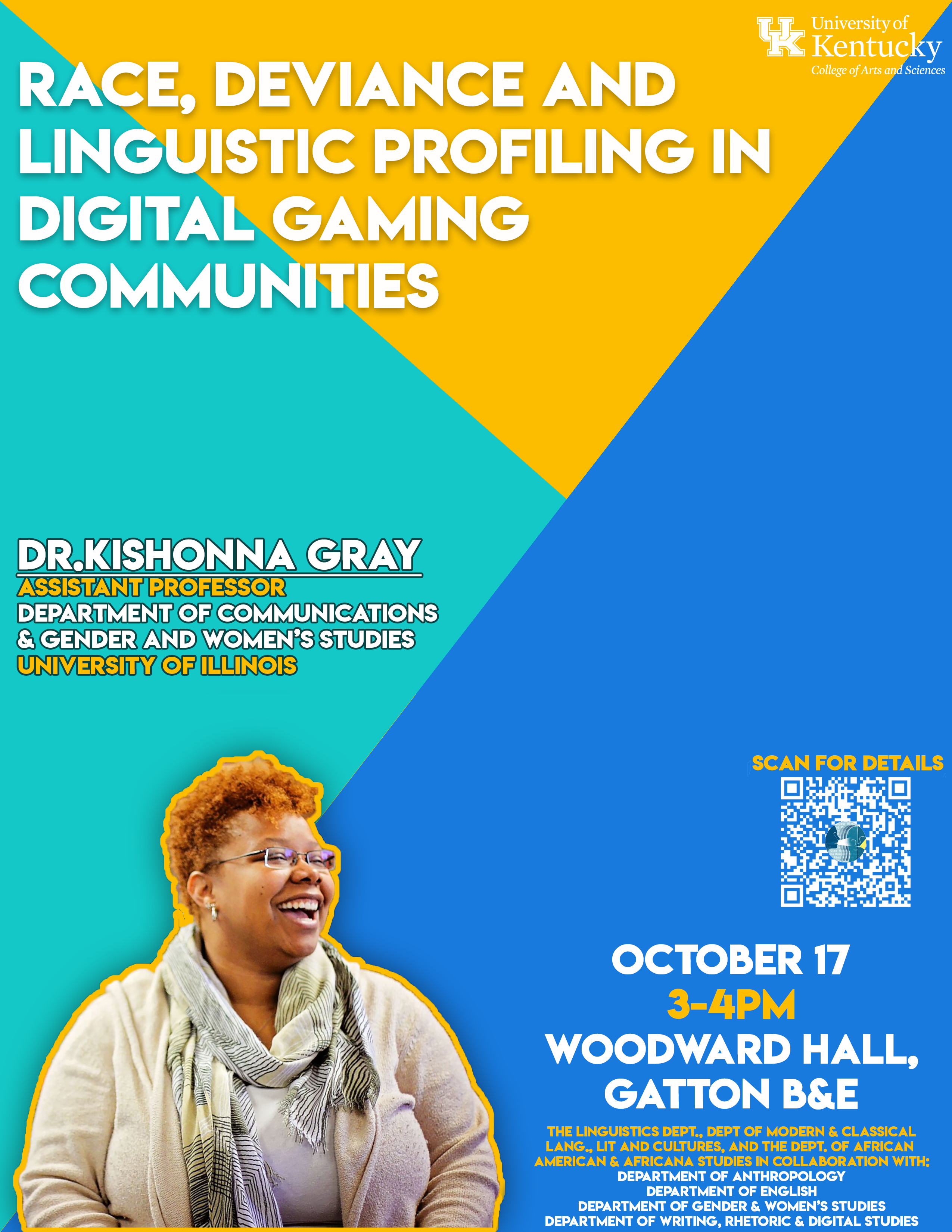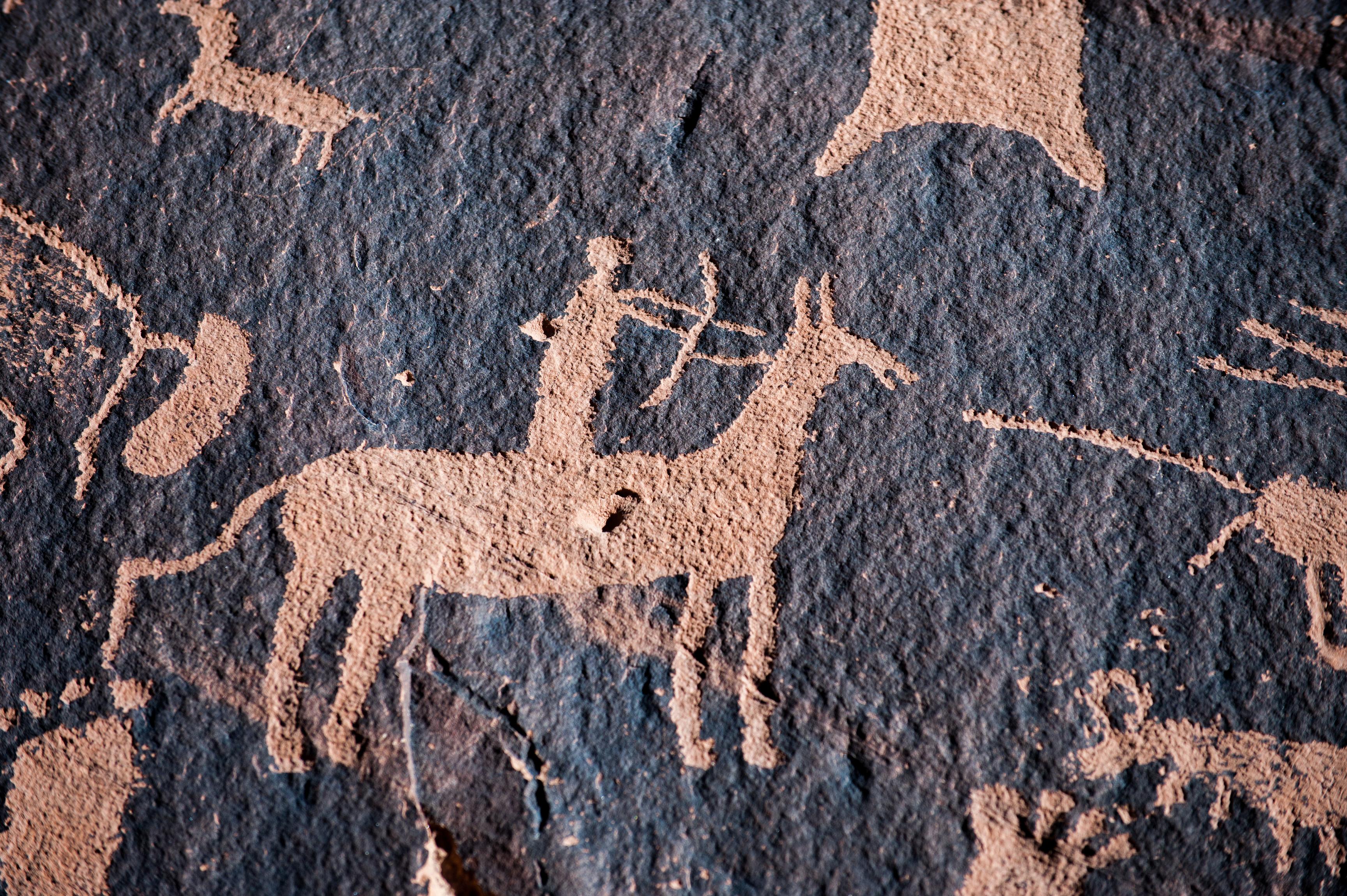Colloquium Speaker Series
“I’ve never known a white person to live on Hill Street:” Racializing Gentrification through Framing and Erasure
Gentrification, the “production of urban space for progressively more affluent users” (Hackworth 2001) is quite possibly the most well-studied phenomenon in urban studies, urban geography, and allied fields which deal with urban culture. It has, however, been seriously under-theorized and under-explored by linguists, with its studies being limited mostly to studies of linguistic landscape. In this talk, I discuss data from an ongoing project in Anacostia, Washington, D.C., an historically-Black neighborhood which has undergone rapid change in the 2010s. Despite that during the time the data was collected, the neighborhood was experiencing an influx of affluent African Americans, the process of gentrification is still thought of as being primarily driven by whites, a la the “white offensive” documented by Mary Patillo (2010, 2013) in her work on Chicago’s northern suburbs. Using data from 34 sociolinguistic interviews, I trace three frames of how Black residents of the neighborhood evaluate white presence in the neighborhood: neutrally, as a novelty, negatively, as a takeover, and positively, as diversity. I argue that these three frames have the effect of erasing the existence of Black newcomers, which in turn re-produces Big-D discourses which see gentrification as a purely racial, rather than economic issue. This in turn, allows the community members to position the neighborhood’s Black residents—old and new, lower income and affluent,—as a single cohesive community staking a firm claim on Black urban space.

Race, Deviance and Linguistic Profiling in Digital Gaming Communities
Abstract: This presentation explores how many marginalized users of digital technologies are labeled as deviant. Many women and people of color utilize digital technologies for means beyond what they were intended. For instance, gaming technologies and their associated online environments are often used as spaces to foster community among queer gamers who are not ‘out’ in their physical spaces but have the opportunity to be ‘out online’. Social media and other technologies afford Black users the means to resist physical oppression and mobilize around social justice issues. Ethnographic observations and narrative interviews reveal this Black digital praxis uncovering what Black cyberfeminists would articulate as the liberatory potentials of digital technologies.

CANCELLED: Language Diversity in Educational Settings
Dunstan is the NCSU Assistant Director of the Office of Assessment. Her research examines dialect as an element of diversity that shapes the college experience, particularly for speakers of non-standardized dialects of English. Dunstan and Jaeger (2015) found that students from rural, Southern Appalachia felt that their use of a regional dialect put them at a disadvantage in the college classroom. The students interviewed by Dunstan reported that “they had been hesitant to speak in class, felt singled out, dreaded oral presentations, tried to change the way they talked, and felt that they had to work harder to earn the respect of faculty and peers”. In addition to speaking about her work with Appalachian college students, Dunstan would accompany members of the Department of Linguistics to a meeting with the UK office of Academic and Student Affairs to discuss how to meet the needs of all UK students, regardless of linguistic background.
Student Research Presentations
Undergraduate research presentations. Students who were enrolled in LIN 395 will present their research that they have been working on for the semester.
Master's in Linguistics Theory and Typology Info Session
Are you considering grad school? Attend this info session to learn more about earning a Master in Linguistics Theory and Typology (MALTT).
Our faculty consists of specialists in phonetics, phonology, morphology, syntax, semantics, historical linguistics, sociolinguistics, language acquisition, and the analysis of specific languages. The MALTT degree emphasizes both linguistic theory, whose aim is to increase our knowledge about the fundamental nature of human language, and typology, the study of the domains of similarity among languages and the dimensions and degrees of their differences. Training in computational research paradigms is present throughout the program.
Horse Whispers: How Linguistics Illustrates the History of Horses
By Madison Dyment

When you picture Kentucky, you think “horse country.” The culture of these animals is deeply ingrained in the state; there’s the horse park, the Kentucky Derby and hundreds of idyllic horse farms dotted across the countryside. Domesticated horses are a norm for our society. What’s harder to see is the horse’s ancient history. Even harder, how linguistics has helped shed light on it.
Year of Equity Series: Linguists often talk the talk but how can we also walk the walk
This talk is made possible by generous support from our friends in Modern and Classical Languages, Literatures and Cultures; English; Gender and Women’s studies; Sociology; Writing, Rhetoric and Digital Studies; African American and Africana Studies; and the College of Arts and Sciences.
